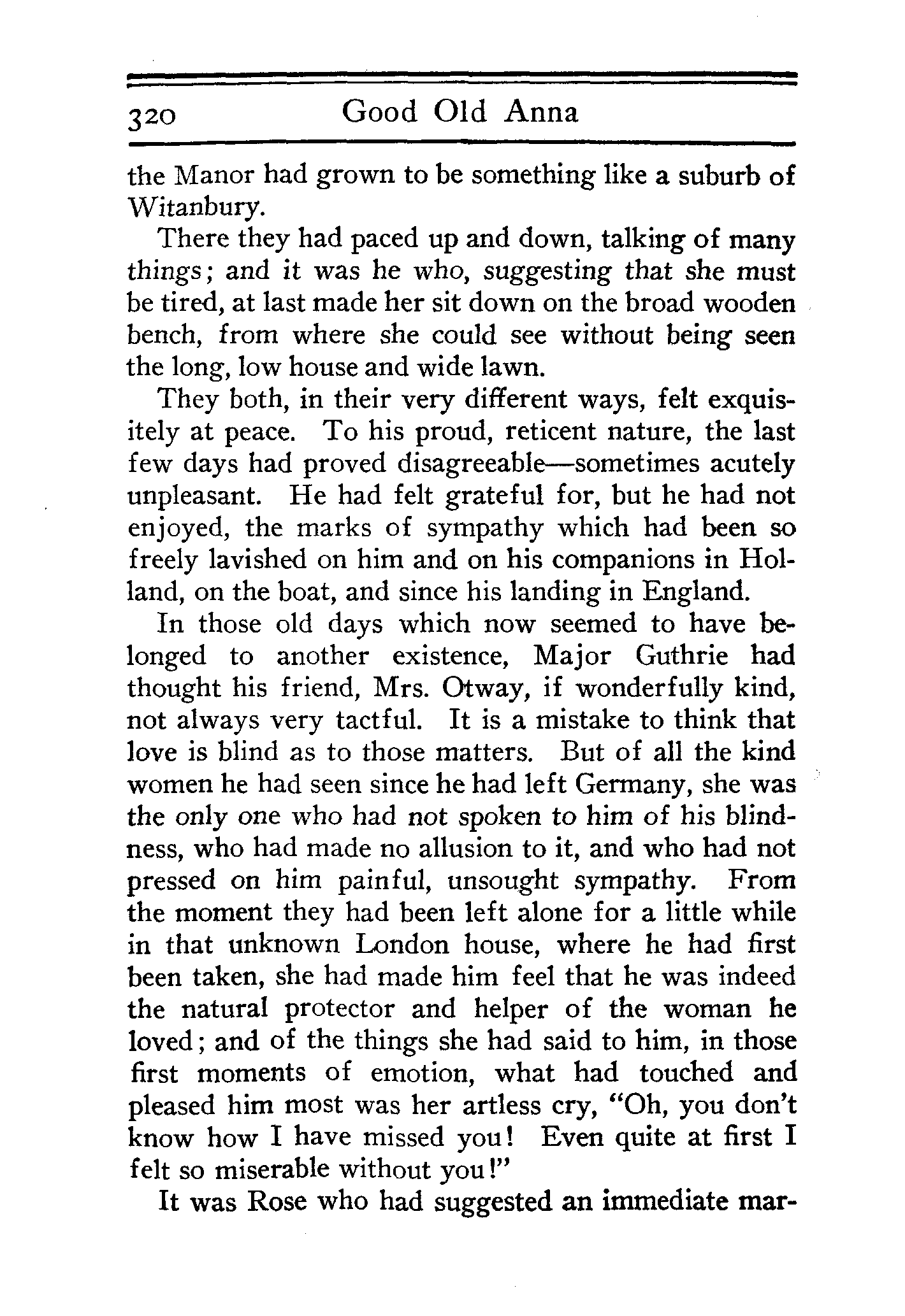 p319 _
-chap- _
toc-1 _
p320w _
toc-2 _
+chap+ _
p321
p319 _
-chap- _
toc-1 _
p320w _
toc-2 _
+chap+ _
p321
the Manor had grown to be something like a suburb of
Witanbury.
There they had paced up and down, talking of many
things; and it was he who, suggesting that she must
be tired, at last made her sit down on the broad wooden
bench, from where she could see without being seen
the long, low house and wide lawn.
They both, in their very different ways, felt exquisitely
at peace. To his proud, reticent nature, the last
few days had proved disagreeable -- sometimes acutely
unpleasant. He had felt grateful for, but he had not
enjoyed, the marks of sympathy which had been so
freely lavished on him and on his companions in Holland,
on the boat, and since his landing in England.
In those old days which now seemed to have belonged
to another existence, Major Guthrie had
thought his friend, Mrs. Otway, if wonderfully kind,
not always very tactful. It is a mistake to think that
love is blind as to those matters. But of all the kind
women he had seen since he had left Germany, she was
the only one who had not spoken to him of his blindness,
who had made no allusion to it, and who had not
pressed on him painful, unsought sympathy. From
the moment they had been left alone for a little while
in that unknown London house, where he had first
been taken, she had made him feel that he was indeed
the natural protector and helper of the woman he
loved; and of the things she had said to him, in those
first moments of emotion, what had touched and
pleased him most was her artless cry, "Oh, you don't
know how I have missed you! Even quite at first I
felt so miserable without you!"
It was Rose who had suggested an immediate mar-
[[320]]
p319 _
-chap- _
toc-1 _
p320w _
toc-2 _
+chap+ _
p321